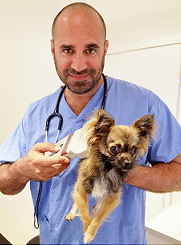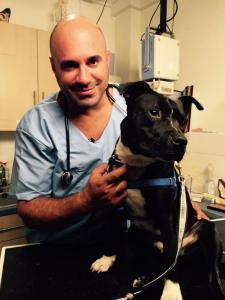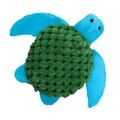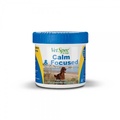Let’s face it pets in the UK could probably do without Bonfire Night; the annual scarefest of fireworks of all shapes and sizes, colours and noises, randomly exploding all around. It can be incredibly stressful for our four-legged friends so it’s important to be prepared, otherwise they risk suffering both short and long-term behavioural problems, phobias, and even serious injury.
Luckily these days our knowledge of animal behaviour is better than ever, with a growing number of strategies and products designed specifically to help reduce anxiety in frightened pets, making coping with a very noisy and distressing period possible. Nowadays there are many calming products on the market geared at reducing firework stress, including natural remedies, pheromone sprays and diffusers, and even calming supplements. Sometimes more severe cases require stronger medication and/or the help from a qualified animal behaviourist.
Pheromone-based products such as the popular Adaptil and Feliway ranges contain a synthetic copy of the feel-good chemicals released by dogs and cats when they are feeling happy and relaxed. The products are non-sedative and provide a calming effect to pets in need of some reassurance. Other natural solutions include Zylkene (suitable for dogs, cats and horses), Pet Remedy (suitable for all pets) and Dorwest Scullcap and Valerian tablets, a herbal remedy for the support of dogs and cats.
 Signs of a stressed dog include shaking, crying, hiding, panting, restlessness, or appearing ‘flat’ both mentally and physically. Frightened felines may begin soiling indoors, excessively grooming, or will even become aggressive, so please keep cats inside after dark and provide a litter tray if they usually go outside.
Signs of a stressed dog include shaking, crying, hiding, panting, restlessness, or appearing ‘flat’ both mentally and physically. Frightened felines may begin soiling indoors, excessively grooming, or will even become aggressive, so please keep cats inside after dark and provide a litter tray if they usually go outside.
Pets lacking in confidence should ideally be acclimatised before bonfire night using desensitisation CDs/downloads; introducing your pet to a variety of potentially disturbing noises in a nice, controlled manner can help them adjust. A safe ‘den’ such as a crate should always be provided, if not already, allowing pets to hide away when scared. Include an unwashed piece of clothing too, e.g. an old woolly jumper bearing your scent to make them feel more comfortable. Turning your TV or radio up can also help distract pets from loud firework bangs and whizzes.
Remain calm, happy, and cheerful as this sends out happy signals to your pet, preventing them picking up on anything abnormal. Rewarding good behaviour with special treats and favourite toys will help but don’t be surprised if they’re not in an accepting mood. Feed and walk dogs before dusk, draw the curtains tightly shut, and ensure all doors, windows, and cat/dog flaps are firmly closed; helping to block out scary flashes of light and reduce firework noise levels.
Keep water bowls topped up as anxious pets often pant and get thirstier. Do your homework too, checking where and when displays are being held in your local area, as well as asking neighbours if they’re planning their own display. Never lock your pet away in a room on their own, punish them for being scared or even try forcing them to face their fears – they’ll just become even more frightened. 
Remember to walk and feed your dog long before any fireworks start, as they may be too nervous to eat later on. Feeding a large meal can often calm your pet down, and much like us, even help them sleep too. All dogs should wear a collar and tag, as well as being microchipped (with all details up to date) just in case they accidentally escape. Never take your dog along to a firework display, or tie them up anywhere outside.
Small pets e.g. rabbits, guinea pigs, hamsters, gerbils will all benefit from hutches or cages being brought indoors, preferably into a quiet room, garage or shed, giving them extra bedding to burrow into. Cover aviaries/hutches with thick blankets or a duvet to help block out sounds of bangs and the sight of fireworks, making sure there’s sufficient ventilation. Finally always check bonfires before lighting them to ensure that no small animals, such as hedgehogs, are asleep inside.
Here’s to a safe and stress-free Bonfire night for you and your pets! Post written by Marc the Vet.
Written by: Hannah








